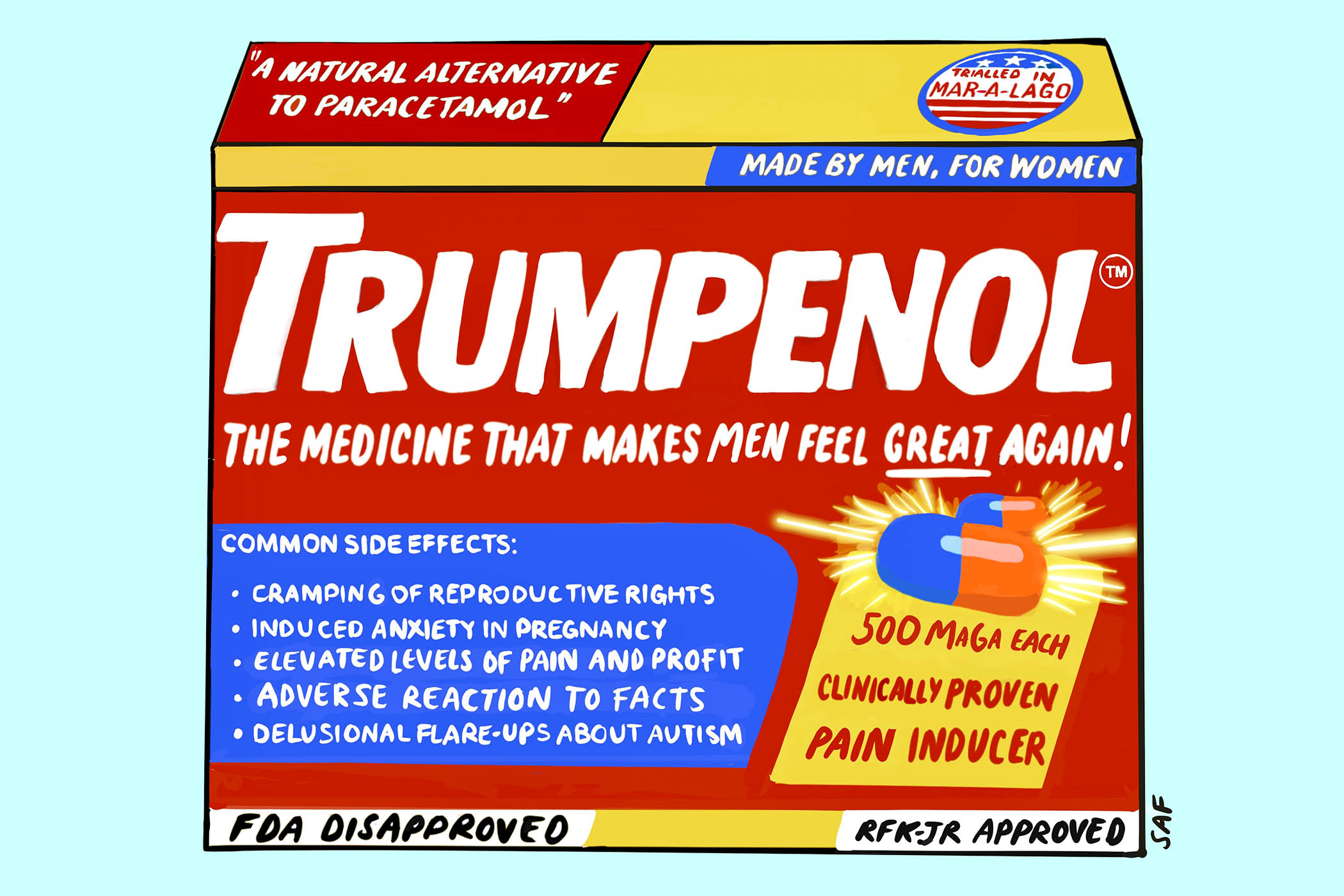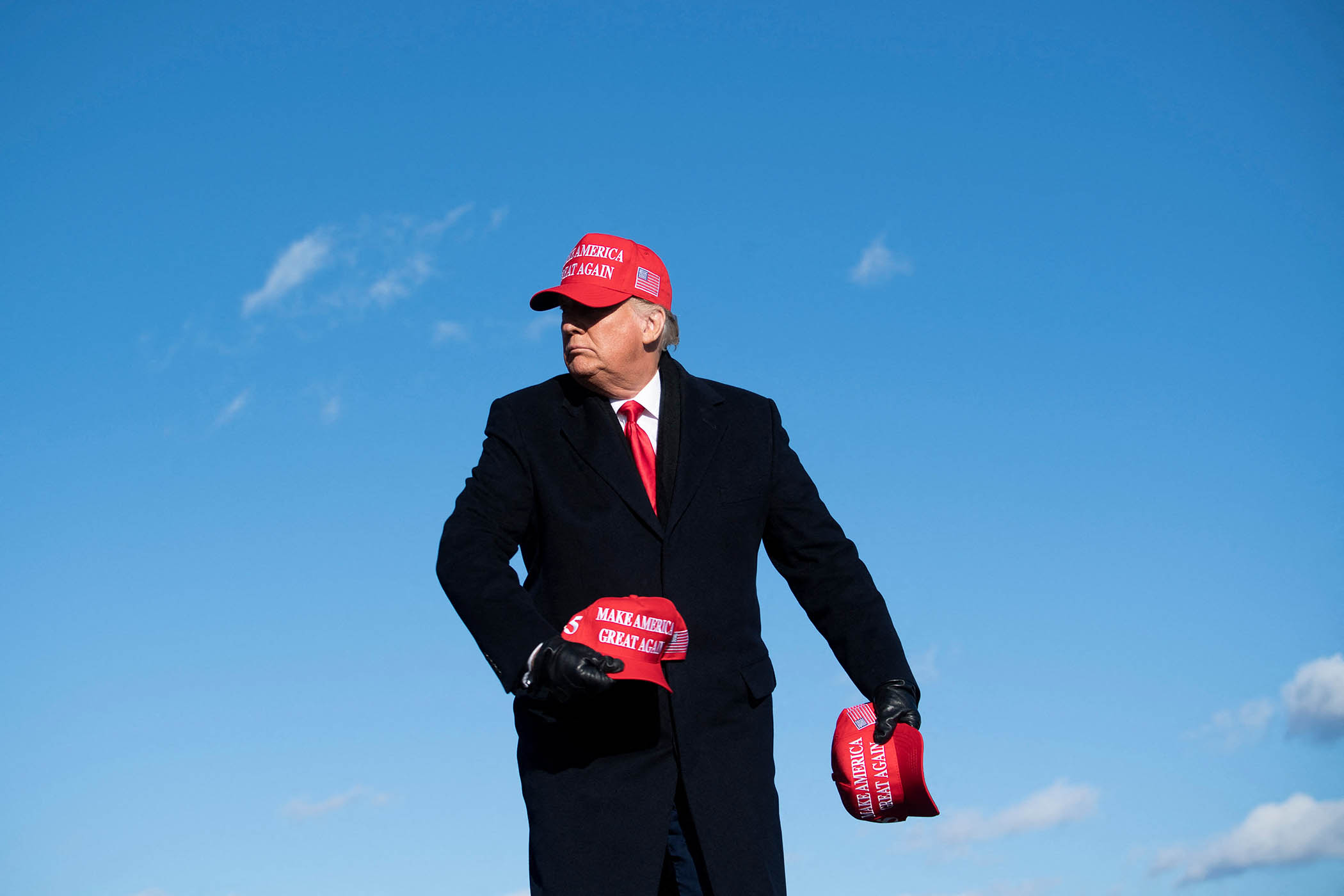Donald Trump’s warning to pregnant women to avoid Tylenol seemed to come out of the blue. Flanked by two middle-aged white men, the president told millions of expectant mothers on Monday to “tough it out” rather than take one of the few mainstream pain medications approved for pregnancy.
Trump told reporters that Tylenol was “no good” and could cause autism if taken during pregnancy. Women should “fight like hell” to take it only in cases of extreme fever. US doctors will now be advised not to recommend the drug – called paracetamol outside the US – during pregnancy.
Trump’s attack on Tylenol was pivotal. For doctor and patient groups it presented a nightmare scenario: pregnant women might now choose to suffer through a much more serious fever than take a common over-the-counter medication that most studies show is perfectly safe.
For Robert F Kennedy Jr, US Trump’s health secretary, and others close to health policy, it marked the culmination of years spent raising concerns about the drug. At the same time, organisations to which they were closely connected have marketed or promoted “natural” alternatives to paracetamol.
“The conditions that people use acetaminophen to treat during pregnancy are far more dangerous than any theoretical risks,” Dr Steven Fleischman, the president of the American College of Obstetricians and Gynecologists, said, referring to the generic name for the drug.
Many expectant mothers took Trump’s warning as just the latest admonishment of a group already chided for jogging or eating soft cheese. For parents whose children had an autism diagnosis, it felt like an accusation.
“Is this why my child has autism?” one parent asked Dallas Reed, a doctor at Tufts Medical Center in Boston. Reed told The Observer she had to “reassure [parents] that autism is not caused by any medication they used in pregnancy”.
While some studies show a slight correlation between acetaminophen in pregnancy and autism, others have found no link at all. These include a comprehensive study of 2.4 million Swedish children including comparisons between siblings, some of whom were exposed to the drug in the womb and some not, enabling researchers to control for other factors. They found no difference in autism rates.
“I continue to recommend acetaminophen as a safe option,” Reed said. “In some cases, such as fever, it is the only safe and effective treatment available.”
Vaccine sceptics who believe vaccines can cause autism were also listening closely to Trump. For years, they have waited for a standard bearer to get close enough to a US president to influence policy from the inside.
Newsletters
Choose the newsletters you want to receive
View more
For information about how The Observer protects your data, read our Privacy Policy
Now Kennedy, a long-time vaccine sceptic, is health secretary. When his supporters heard Trump say he was taking “historic steps to confront the crisis in autism” and thanked Kennedy for “bringing this issue to the forefront of American politics”, many thought their moment had come.
Although Trump mentioned vaccines in a rambling speech, urging parents to vaccinate their children in single doses rather than a combined shot, he angered some hardliners by focusing more on Tylenol as a cause of autism instead.
“We didn’t wait 20 years for Bobby to finally speak and then get served Tylenol as an answer,” anti-vaccine group Georgia Coalition for Vaccine Choice wrote on Facebook. “Not aluminium. Not thimerosal. Not MMR. Are we supposed to just forget?”
In fact, Kennedy had not intended Trump to focus on the drug. The original plan was to release a list of 31 hypotheses for why autism rates appear to be rising, of which Tylenol was one. After years of vaccines being publicly, and incorrectly, linked to rising autism rates, why did Trump pick on a drug used by 60 million Americans each week instead?
On Thursday the Wall Street Journal reported that Kennedy had spent a weekend poring over acetaminophen studies and summoned Kirk Perry, interim chief executive of Tylenol’s maker Kenvue, for a meeting. Kennedy was apparently left unsatisfied with Perry’s assurance it was safe.
This may have been the trigger, as was Trump’s own frustration with public health officials.
But Kennedy and others close to Trump have been critical of acetaminophen for years, an investigation can reveal, at the same time as fostering deep connections to organisations that have sold or promoted “natural” pain relief. These organisations could now benefit financially if women follow the president’s advice and reject the drug in favour of unproven remedies.
Children’s Health Defense, an anti-vaccine nonprofit chaired by Kennedy until 2023, has spent years raising concerns that acetaminophen could increase autism risk, both in pregnancy and during early years. CHD has also received funding from supplement companies selling non-medical pain relief. These include Earthley Wellness, an Ohio-based company which sells a “pain potion” for $25.99 marketed as containing “absolutely no acetaminophen ... or other junk”.
Earthley has donated at least $5,000 to the CHD and published a blog titled “10 Reasons You Should Reconsider Using Acetaminophen”. CHD also received sponsorship from Dr Green Mom, another supplement company which recommends pregnant women take magnesium or ginger instead of paracetamol.
While certain herbs have been found to treat specific pain, there is little evidence to support all-purpose “potions” like Earthley’s offering. Pregnant women are particularly advised not to use such remedies.
Others in Kennedy’s close circle have also forged links to non-medical pain treatments.
Last December, Kennedy transferred ownership of the trademark application for his slogan Make America Healthy Again to a company managed by Del Bigtree, a prominent anti-vaxxer who ran Kennedy’s 2024 presidential campaign. Bigtree’s company has since applied to expand the trademark to use MAHA branding to sell vaccines, supplements and vitamins. “It does appear that women who take Tylenol have a higher risk of autism,” Bigtree said in a 2022 video. “The can of worms is open.”
Dr Mehmet Oz, a heart surgeon and celebrity known as “America’s doctor”, was standing beside Trump and Kennedy at Monday’s announcement. Trump chose Oz to run the federal agency overseeing the Medicare and Medicaid services. At that time, he was also a “global adviser and stakeholder” for the global e-commerce supplement company iHerb.
iHerb’s website sells 42 types of “natural” pain relief formulas, including Old Amish Muscle Tonic and a clove toothache compress, as well as over-the-counter drugs. Oz heavily promoted iHerb’s products on social media while running TV segments with titles such as “Hidden Acetaminophen Danger”. In the 24 hours after Trump’s announcement, search interest in iHerb spiked on Google.
“There are natural solutions to most over-the-counter medication,” Oz said in one YouTube video in February. Oz appeared to row back from Trump’s fiercest criticisms of Tylenol when he told an interviewer last week that women should “take it when it’s appropriate”.
Other people close to Trump are also linked to supplement companies. Sebastian Gorka, a deputy assistant to the president, has a long relationship with Relief Factor, an “all-natural pain relief” supplement. In one bizarre TV ad, he says: “I love dogs, I hate pain. I have been taking Relief Factor every day for years and it’s 100% drug free.”
Illustration by Saf



